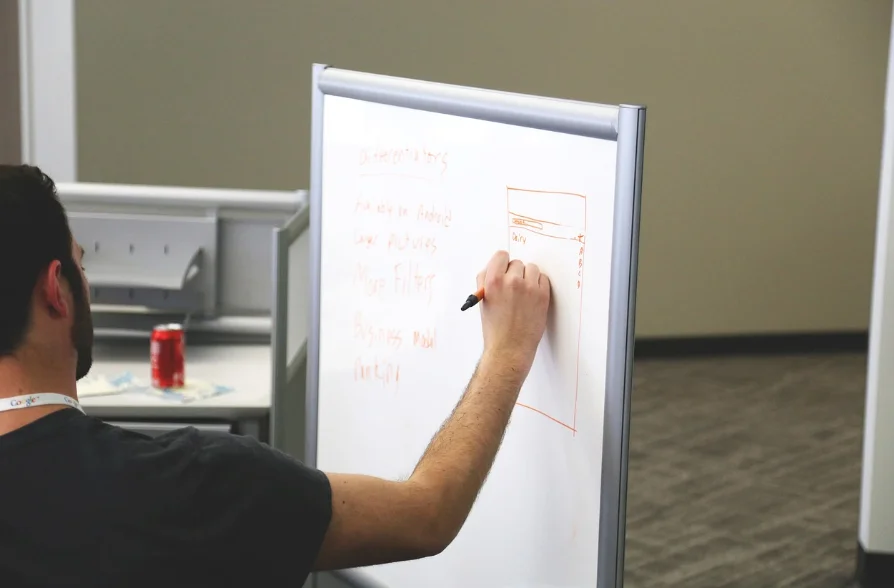With the approach of a new year, the landscape of the workforce and industries is evolving at a rapid pace. The demand for project managers is surging, and the global median salary stands impressively at $120k. This surge marks an essential juncture for project managers to hone and refine their skills.
Businesses, now more than ever, heavily lean on project management experts to navigate the fluidity of the economy and adapt to dynamic market demands. Employers seek professionals who are agile, forward-thinking, collaborative, and open to embracing change.
As project managers gear up to face the challenges of the upcoming year, three pivotal skills emerge as crucial in setting them apart and ensuring both project and career success.
1. Continuous Learning
Remaining relevant and competitive in the ever-evolving landscape requires a commitment to staying abreast of industry trends, market shifts, emerging technologies, and the best practices in project management. Demonstrating a hunger for learning and continual professional development not only impresses employers but also amplifies work efficiency and refines a diverse set of skills, encompassing both soft and hard aspects such as budgeting, risk management, and leadership.
While acquiring certifications like PMP is considered an ideal step, there’s a myriad of ways to advance training. Engaging in diverse programs or projects slightly beyond one’s current expertise offers valuable opportunities to fine-tune skills and address areas for improvement.
2. Adaptability
Flexibility and adaptability stand as cornerstones for success in the realm of project management. Projects rarely unfold seamlessly, especially as the new year ushers in a wave of AI-driven technologies. Being prepared to pivot strategies to accommodate these new technological advancements and anticipating the unpredictability of markets post-pandemic is crucial.
Readiness to reassess strategies in response to stakeholder demands, navigating complex organizational landscapes, and learning from past mistakes to make necessary adjustments are imperative skills in this fast-paced environment.
3. Artificial Intelligence Proficiency
The adoption of AI is skyrocketing, offering compelling strategies to mitigate time constraints and risks in work processes. AI-powered tools empower project managers to make more informed decisions and execute tasks efficiently by providing access to previously unattainable data and insights. These tools streamline routine tasks, facilitate project planning, aid in document creation, manage workloads, and even assist in summarizing stakeholder meetings.
This proficiency amplifies creative problem-solving and job satisfaction by freeing up time for strategic thinking. Exploring and integrating free or paid AI productivity tools can significantly enhance workflow, streamline team communication, and offer more accurate forecasting.
As the new year unfolds, challenges will undoubtedly surface, but so will opportunities. Project managers who embrace these changes by committing to continuous learning, demonstrating adaptability, and integrating AI into their workflow will not only position themselves for personal and professional growth but will also turn these challenges into stepping stones for successful project outcomes.
4. Leadership and Team Management
Effective leadership and team management skills are pivotal for project managers. Leading a diverse team towards a common goal demands strong communication, conflict resolution, and motivational abilities. Creating a positive work environment, fostering collaboration, and empowering team members to take ownership of tasks are essential aspects.
5. Project Manager in Thinking and Problem-Solving
Project managers operate in an environment rife with complexities and uncertainties. Honing critical thinking skills becomes instrumental in deciphering intricate situations, pinpointing root causes, and innovating solutions. Cultivating a culture of creative problem-solving within the team not only fosters adaptability but also instills resilience, empowering the collective to confront challenges head-on and unearth ingenious resolutions.
6. Emotional Intelligence (EQ)
Beyond technical prowess, emotional intelligence stands as a cornerstone skill for project managers. Mastery in understanding and regulating emotions, both personally and within team dynamics, is paramount. Elevated emotional intelligence equips project managers with the adeptness to navigate conflicts tactfully, forge robust interpersonal relationships, and cultivate a work environment steeped in positivity and collaboration. This skillset, comprising empathy, self-awareness, and skilled management of interpersonal dynamics, elevates team dynamics and overall project efficacy.
7. Risk Management and Decision-Making
Proficiency in risk management transcends identifying and assessing potential hazards; it encompasses comprehensive mitigation strategies throughout the project’s lifecycle. Sound decision-making, rooted in meticulous risk assessments, becomes foundational. Project managers wield the responsibility of evaluating multiple options, meticulously weighing their consequences, and making informed decisions meticulously aligned with the overarching project objectives. The adeptness to navigate risk landscapes and pivot strategies ensures project resilience and success.
8. Stakeholder Management
A project’s triumph hinges greatly on effective stakeholder engagement and management. Building robust relationships with stakeholders, comprehending their nuanced needs, and fostering transparent communication channels are pivotal. Skilled project managers adeptly balance stakeholder expectations with project constraints, necessitating astute negotiation skills and the finesse to resolve conflicts amicably. The art of harmonizing diverse stakeholder interests optimally contributes significantly to project alignment and success.
9. Time and Resource Management
Central to project success lies the mastery of time, budget, and resource management. Project managers must skillfully navigate the complexities of prioritization, resource allocation, and meticulous scheduling. Balancing multifaceted demands while ensuring judicious resource utilization underscores project efficiency. The ability to orchestrate and optimize available resources, aligning them with project objectives, drives forward momentum and elevates project outcomes.
Incorporating and nurturing these multifaceted skills augments a project manager’s arsenal, fortifying their capabilities to lead teams adeptly and navigate the intricate landscapes of project management with finesse and efficacy.
Conclusion
The coming year presents a canvas painted with both challenges and opportunities. By embracing a proactive approach to skill development, flexibility, and technological integration, project managers can pave the way for their personal advancement and contribute significantly to the success of their projects and organizations.
